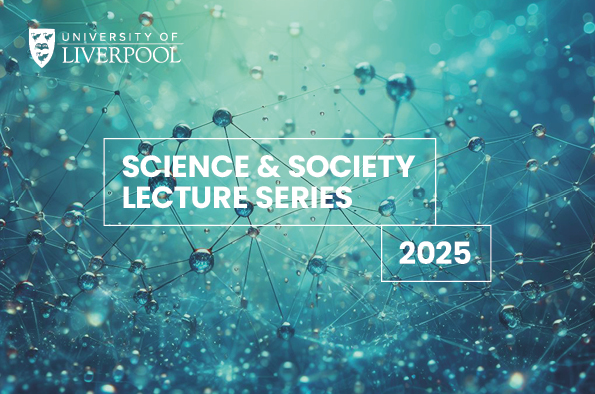
Science & Society: Weighing Molecules to Diagnose Disease, from Heel Prick to Skin Swab
- Amelia Dessington
- Suitable for: Suitable for all audiences
- Admission: Free
- Event website
- Book now
Add this event to my calendar
Click on "Create a calendar file" and your browser will download a .ics file for this event.
Microsoft Outlook: Download the file, double-click it to open it in Outlook, then click on "Save & Close" to save it to your calendar. If that doesn't work go into Outlook, click on the File tab, then on Open & Export, then Open Calendar. Select your .ics file then click on "Save & Close".
Google Calendar: download the file, then go into your calendar. On the left where it says "Other calendars" click on the arrow icon and then click on Import calendar. Click on Browse and select the .ics file, then click on Import.
Apple Calendar: The file may open automatically with an option to save it to your calendar. If not, download the file, then you can either drag it to Calendar or import the file by going to File >Import > Import and choosing the .ics file.
Every year more than 30 million babies worldwide are screened for inborn metabolic disorders directly after birth with a heel prick assay that takes a tiny amount of blood to be analysed with a mass spectrometer.
By analysing sebum with mass spectrometry, a new method to detect Parkinson’s disease has been determined.
Found in endogenous compounds obtained from skin swabs, it can be determined if an individual has Parkinson’s with more than 95% accuracy. The unique research program was initiated by Mrs. Joy Milne, a retired nurse from Perth who noticed a change in her husband's body odour 11 years before his clinical diagnosis of Parkinson's disease. Joy noticed the same distinctive odour was associated with other sufferers and hence linked it to onset of the disease.
Based on Joy's observation, with simple non-invasive sampling of skin from the upper back, a diagnostic platform has been developed that is able to classify PD from sebum samples.
This talk will discuss using mass spectrometry to analyse intact biomolecules, methodological approaches for biomarker discovery, recent findings and give a perspective on how non-invasive sampling and mass spectrometry could play a major role for prevention and effective treatment of disease.
Professor Barran holds a Chair of Mass Spectrometry in the Department of Chemistry and is the Director of the Michael Barber Centre for Collaborative Mass Spectrometry and a member of Manchester Institute of Biotechnology, The University of Manchester, UK.
She is the deputy chair of the Infrastructure and Capital Advisory Group for the Medical Research Council, UK.
Her research interests include: Biological mass spectrometry; Instrument and technique development; Protein structure and interactions; Dynamic and Disordered Systems; Parkinson’s disease Diagnostics; HDX-MS; Proteomics; and Molecular modeling. She is a Fellow of the Royal Society of Chemistry, and this year was awarded the RSC Tilden Prize. In 2019 she was the recipient of the RSC Theophilus Redwood, Researcher of the Year 2020 from the University of Manchester and the ACS Measurement Science Lectureship 2021. In 2020 she initiated the COVID-19 Mass Spectrometry Coalition and was appointed as Chief Advisor to the UK Government on Mass Spectrometry as part of their pandemic response. Perdita has had the privilege to mentor 35 graduate students through the successful completion of their PhD’s. as well as 16 postdoctoral fellows. Perdita has authored over 200 publications in peer reviewed journals which have been cited over 4000 times, by people other than her.
In 2021 Perdita founded the company Sebomix Ltd. to exploit sebum as a diagnostic biofluid with a focus on Parkinson’s Disease.
